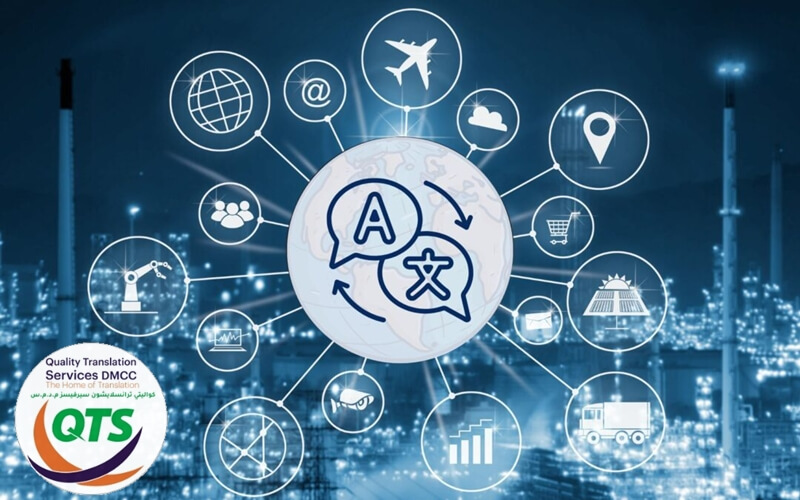Top 7 Industries that Benefit from Professional Translation Services
Global commerce now moves at digital speed and across every border. According to IMARC Group, the language-services market was worth about USD 75.5 billion in 2024 and is on track to reach roughly USD 111 billion by 2033, expanding at a compound annual rate of 4.4%. Those numbers show why searches for legal translation in Dubai continue to climb. In a trade-heavy country like the United Arab Emirates, clear multilingual communication holds together deals, visas, and customer relationships.
Below are seven sectors that see the greatest return when they partner with a qualified language service provider.
- Healthcare and Life Sciences
Hospital chains, pharmaceutical firms, and medical-device makers all face strict rules from regulators. Patient leaflets, dosage labels, and trial protocols must be flawless in every language or a product launch can stall. A single mistranslated unit (for example, mg versus ml) can endanger lives.
Professional medical translators combine linguistic skill with subject knowledge. They understand medical Latin, regional drug names, and UAE Ministry of Health guidelines. Certified copies carry legal weight so clinics and suppliers pass inspections on the first try. With accurate Arabic and English documents, patients trust instructions and insurance claims flow smoothly.
- Legal and Compliance
Law firms and in-house counsel manage contracts, court submissions, and patent filings that hinge on precise wording. A term like “force majeure” or “beneficial ownership” can shift liability if rendered loosely.
Legal translators are trained to mirror the syntax of original clauses while adapting them to UAE statutes. Many also hold Ministry of Justice licenses. Using sworn linguists prevents document rejection in DIFC Courts and speeds arbitration. Businesses save on litigation costs and protect their reputation by removing language ambiguity before it triggers disputes.
- Finance and Banking
The UAE is a regional hub for Islamic finance, venture capital, and global remittances. Loan agreements, fund prospectuses, and investor reports move between Arabic, English, and sometimes Hindi or Mandarin. Errors in yield percentages or Sharia terminology can halt approvals or invite fines from the Central Bank.
Financial translation teams add value through dual review: one linguist with banking experience translates, another with regulatory expertise proofreads. Consistency tools ensure figures and acronyms match across all documents. This rigour increases investor confidence and accelerates product launches, whether it is a sukuk issuance or a fintech app update.
- E-commerce and Retail
Scroll any UAE marketplace app and you will see product pages shifting instantly between languages. Shoppers bounce if sizes, payment cues, or currency symbols feel foreign. According to the same CSA Research report, cart abandonment drops when buyers feel linguistically comfortable.
Professional localization covers more than text. It adapts right-to-left screen layouts, swaps payment icons, and even edits photos for cultural fit. Retailers that work with a reliable language partner often cite higher conversion rates and fewer returns because customers know exactly what they are buying.
- Technology and Software
Software firms release frequent updates. If a new feature ships in English today but the Arabic strings arrive two weeks later, Gulf users feel like second-class customers. Delays hurt app rankings and open doors to local competitors.
Agile translation workflows sync with product sprints. Source strings feed directly from a repository to linguists, then flow back into the codebase without copy-paste errors. Terminology memories keep UI labels identical across mobile, web, and help-desk articles. Efficient launches earn better reviews and deepen user loyalty.
- Tourism and Hospitality
The Emirates welcome millions of visitors each year. Hotels, airlines, and event venues live on reviews that mention clear instructions and friendly service. Menus, safety cards, and booking engines that appear only in English can confuse travelers and raise complaints.
Specialized translators recreate tone and imagery so that every guest, from a Russian-speaking family to a Japanese business group, feels understood. This attention to language reduces front-desk disputes and drives repeat bookings. It also aligns marketing material with Department of Tourism brand standards, helping campaigns sail through approval.
- Manufacturing and Engineering
Exporters of machinery, construction materials, or oilfield equipment rely on manuals, safety sheets, and tender bids. Technical jargon must remain consistent down to torque values and alloy grades. A mistranslated safety warning can halt a worksite or void a warranty.
Engineering translators usually hold science degrees and follow international standards like ISO 17100. They collaborate with subject specialists to verify diagrams and units of measure. Accurate bilingual documentation impresses procurement teams and cuts down on support calls once equipment is in the field.
How to Capture These Benefits
No matter the industry, three factors turn language work from cost to investment.
- Hire translators who live in the target market. In-country experts pick up slang changes and regulatory tweaks faster than remote generalists.
- Integrate technology. Secure portals, translation memories, and CMS connectors reduce manual error and speed turnaround.
- Demand proof of results. Look for case studies that link language projects to metrics like faster approvals, higher sales, or lower support tickets.
When these pieces align, a company does more than “go multilingual.” It gains an operational edge.
Final Thoughts
Professional translation is not just about words. It is about risk management in hospitals and courtrooms, user loyalty in apps, and growth on balance sheets. From healthcare to heavy industry, the seven sectors above rely on language partnerships every day. If your organization works in any of them, a quick search for legal translation services in Dubai could be the smartest move you make this quarter.
Choose a team with sector expertise, solid security, and the right tools. Your documents, your customers, and your profit margins will thank you.

